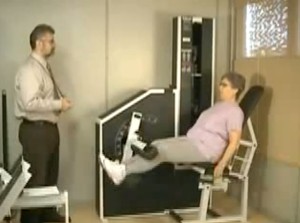Oxytocin has been in the news for 25 years and been given the moniker “love hormone”. A breezy reading of Internet articles suggests what we need is more oxytocin to cure what ails us.
The chemistry engendered by this hormone and brain neurotransmitter is really much more complex (who would have guessed??). A much better description of oxytocin comes from Larry Young of Emory University, “Oxytocin is not the love hormone. It’s tuning us into social information and allowing us to analyze it at higher resolution.”1
What follows is a brief overview of past and current research and recommendations about what we, as ordinary people wanting to improve our health, can do.
Oxytocin is definitely a fascinating hormone and deserves more research. And maybe social neuroscience research has gone a little far in ascribing such power to a widely acting hormone and neurotransmitter. Let’s continue to watch the research.
What We Do Know
- Oxytocin promotes the “let down” reflex in nursing mothers allowing their milk to flow2,3
- Oxytocin causes uterine contractions in the 2nd and 3rd stages of labor2,3
- Oxytocin is produced in the brain and in the gastrointestinal tract, heart, testes, uterus and other parts of the body.3,4
What Various Studies Have Shown
Various in vitro, animal (mostly rats) and some human studies (more research is necessary, especially in humans) suggest that oxytocin:
- decreases blood pressure5,
- reduces vascular oxidative stress and inflammation which are two major players in the development of atherosclerosis (a buildup of plaque in blood vessels – a precursor to heart attacks)6,
- inhibits the tolerance to addictive drugs (e.g., opiates, cocaine and alcohol)7,
- “…taking oxytocin actually reduces alcohol consumption and craving in both rats and humans.”8,
- “…they found that the muscles of the mice that had received oxytocin injections healed far better than those of a control group of mice without oxytocin.”9.
Some of the above studies introduce oxytocin into a body. Using administered oxytocin is distinctly different from you generating your own. This generates critical scientific questions, unanswered as of now, that will affect the conclusions that can be drawn from this research.
The Other Side of Oxytocin
What follows are also suggestive studies, rather than conclusive, and they have been done primarily with humans.
Research is now showing that oxytocin isn’t all cuddles and love. Psychologist Shelley E. Taylor, PhD from the University of California, Los Angeles says, “It’s never a good idea to map a psychological profile onto a hormone; they don’t have psychological profiles.”1
- Intranasal oxytocin can result in the oversensitivity to the emotional cues in others’ faces10
- Oxytocin may be responsible for why stressful, painful emotional situations from your past continue to plague your thoughts now and your thoughts about the future.11,12
- Oxytocin may be behind the defensive aggression we exhibit when our “tribe” is threatened by outsiders (think soldiers).13
What Science Is Hoping For
There has been a lot of preliminary research on how oxytocin could participate in treatments for:
- schizophrenia,
- depression,
- autism, and
- muscle regeneration (a precursor to developing therapies for diseases like Parkinson’s, Alzheimer’s and muscle atrophy)
but preliminary is the operative word. We don’t know how oxytocin works. We only have a partial catalogue of where it might play a chemical role. As unpleasant as it is, we must wait for more research before we start treating ourselves and relatives with oxytocin.
What Should The Ordinary Person Focus On?
Some of what started the major hype around oxytocin is that it reduces cortisol, the stress hormone.14 We know from many other research studies that stress is a major player in the chronic disease pathway. So let us concentrate on reducing stress or turning off a hyperactive “fight or flight” response.
It turns out that activities that you enjoy, especially those that connect you with others, and enjoyable human touch are all very powerful in promoting the relaxation response. It has also been suggested that touch can be healing and promote happiness.
Here are some ideas and suggestions for putting more touch and more relaxation in your life:
- get a massage
- exercise (we have had Alive! clients be amazed at how they have relaxed and calmed down after an exercise session), yoga, walking and qi gong are good, too
- daydream of your loved one
- make love
- give and get ‘hearty’ hugs from humans and pets (heart center to heart center for 20 seconds)
- perform a spiritual practice focused on compassion
- practice more hand-holding
- smile (often and at friends and strangers)
- practice genuine kindness
- reflect on comforting thoughts and memories
- stop to listen to and smell nature
- breathing exercises designed for relaxation
- anything that brings a smile to your heart and lightens your energy.



{ 0 comments… add one now }